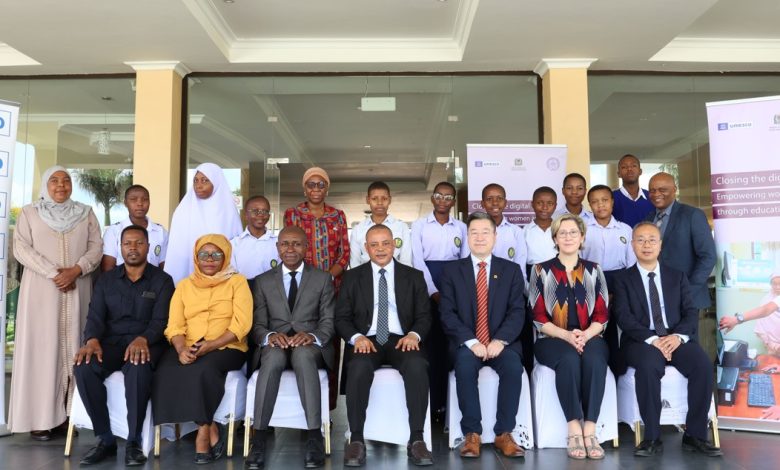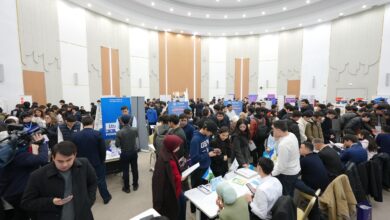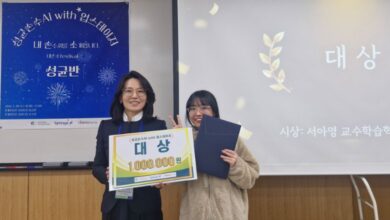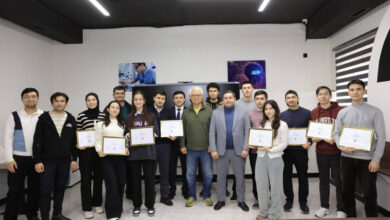Beijing Normal University’s Delegation Launches Digital Education Project for African Girls

A delegation from Beijing Normal University (BNU) participated in the launch meeting of the “Digital Education Collaborative Project for Girls in Africa,” which took place from March 11 to 20. This initiative, organized in collaboration with UNESCO, aimed to promote digital education opportunities for girls on the continent. The delegation was led by Zhou Zuoyu, Deputy Director of the BNU Council and Director of the UNESCO International Research and Training Centre for Rural Education.
Engagement with Organizations
During their visit, the BNU delegation engaged with several organizations, including the University of Dar es Salaam in Tanzania, the UNESCO Offices in Dar es Salaam and Accra, the Association of African Universities, and the University of Ghana. Meetings with officials from Tanzania’s Ministry of Education and Science and Technology focused on the current state of digital education and potential collaboration opportunities with Huawei Technology Company in Ghana.
Official Welcome and Discussions
An official welcome was extended to the delegation on March 12 by Joel Jonathan Kayombo, head of the Education Department at the University of Dar es Salaam. Discussions during this meeting included topics related to the digital transformation of rural education and the training of educators. Zhou emphasized BNU’s commitments to initiatives such as smart education and remote teaching platforms, highlighting the intention to improve educational technology solutions tailored for African needs.
Project Implementation Meetings
On March 13, the BNU delegation held discussions with representatives from the UNESCO Tanzania Office concerning project implementation and support mechanisms. Michel Toto, the office representative, recognized China’s impact on promoting equity in global education and expressed interest in enhancing partnerships with BNU in teacher training and digital curriculum development.
Policy Support and Strategies
Meetings with Tanzanian Deputy Permanent Secretaries also took place on March 13, where strategies for reinforcing policy support and executing digital education initiatives in rural schools were addressed.
Visit to Local Educational Facilities
The delegation also visited local educational facilities, including Mpwampwa Teacher’s College, where they interacted with faculty and students to better understand their practices and the challenges they face in digital education.
Project Launch Event
The launch of the project occurred on March 14 in Dodoma, Tanzania, with participation from senior representatives across relevant sectors. This event underscored the vital role of digital education in empowering girls in Africa and promoting gender equality in the region.
Collaboration Discussions with the Chinese Embassy
Additionally, the delegation met with representatives from the Chinese Embassy in Tanzania to discuss opportunities for enhancing educational collaboration between China and Tanzania. Che Zhaoguang, the Cultural Counsellor of the Chinese Embassy, provided feedback on supportive policies and resource integration.
Continuation of the Tour in Ghana
The BNU delegation continued their tour by arriving in Ghana on March 17, where discussions at the UNESCO Ghana Office and the STEM Center in Accra focused on girls’ education and showcased Ghana’s innovative practices in science and technology education.
Concluding Meetings in Ghana
The visit concluded on March 18 with meetings at the University of Ghana and the Accra College of Education. Further dialogues concerning digital education, teacher training, and enhanced cooperation in higher education were held during these meetings.
Expected Outcomes of the Visit
The activities conducted during this visit are expected to strengthen educational cooperation between BNU and various stakeholders in Africa, laying a foundation for future collaborative efforts aimed at advancing digital education and teacher development initiatives.
(Original source: Beijing Normal University)




